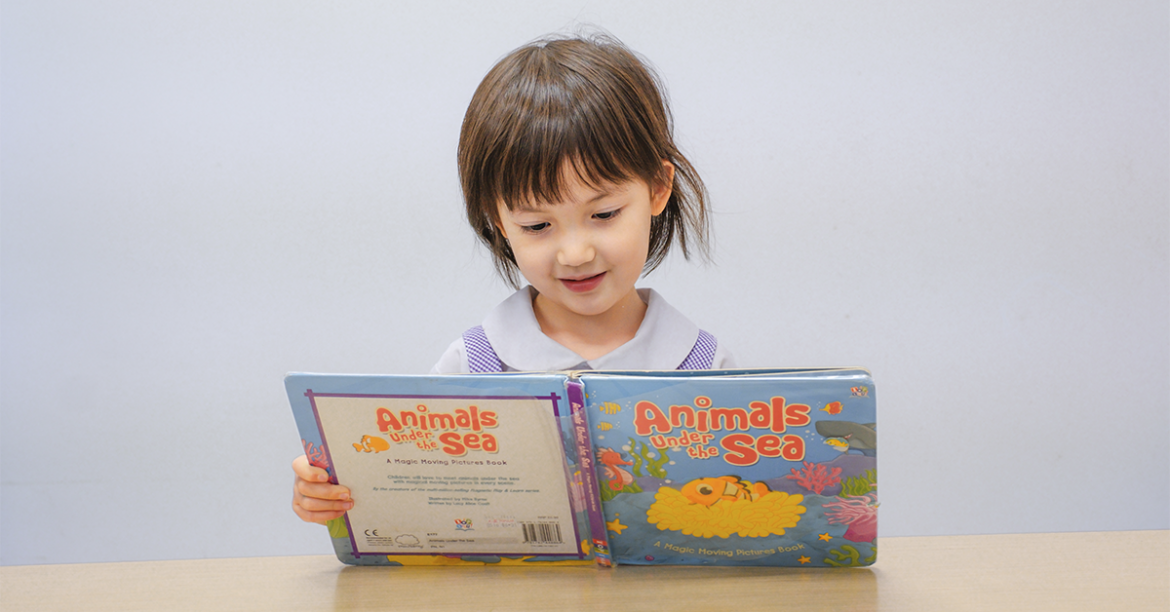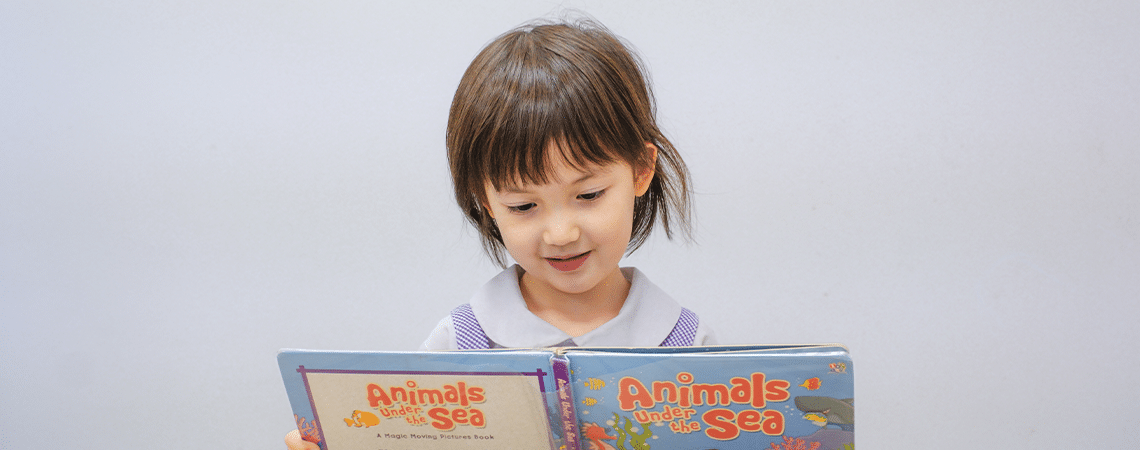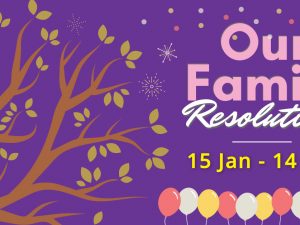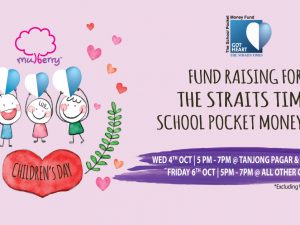

Language Development in Children: 7 Simple Ways Parents Can Play a Part
Language development plays a major part of your child’s overall development at it enables your child to communicate, express and understand feelings. It also supports thinking, problem-solving, and developing and maintaining relationships. As the basis for learning to read and write, learning to understand, use and enjoy the language is the critical first step in literacy.
Research has shown that having a strong language ability is usually associated with positive returns, including happiness, strong family and friend connections, academic success and a fruitful career.
Before your child can learn to read, they need to have a good foundation with a well-rounded understanding of basic words and their meaning. Though it sounds like a really arduous thing to do, here are seven easy ways parents can help build their child’s language and vocabulary skills.
| 7 Ways to Develop Your Child’s Language Capabilities |
|---|
| 1. Talk about interesting objects and events |
| 2. Try to have many conversations with the child |
| 3. Engage in continuous interactions |
| 4. Read and discuss books |
| 5. Use varied words while expanding knowledge |
| 6. Be a walking thesaurus |
| 7. Engage in pretend play |
1. Talk about interesting objects and events
Children are fascinated by the world and everything in it. If you notice your child staring or pointing at an object, take this opportunity to talk about it. For example, a mother noticing that her toddler pointing at a bus excitedly may say, “Look at the bus. It’s a green double-decker bus and it’s stopping at the bus stop so that passengers may get on and off.” Try to seize upon the child’s interest in the things that they see to teach them new words, name, describe and explain things.
2. Try to have many conversations with children
The amount of words and languages heard by toddlers when you converse with them truly matters. As language areas in the child’s brain are rapidly developing, the ability to translate sounds into meaningful words also rapidly improves. Linking sounds to meanings quickly enables the child to continue to make sense of the words that they hear. How quickly the child assigns meaning to words is strongly related to the amount of language they have heard as part of adult-child conversations.
3. Engage in continuous interactions
As your child approaches the age of 2, it is not only the quantity but also the quality of the conversations that they hear that matters. Talk to your child about a particular object, topic or events for a decent amount of time to really foster their language growth. By decent amount of time, what it means is to have a conversation with at least eight to ten back-and-forth exchanges between yourself and the child. You could ask their opinion and thoughts about the particular matter to further stimulate their mind and logic capabilities. Children who have longer-lasting conversations show faster brain development and more efficient processing of information than those who have fewer and shorter ones.
4. Read and discuss books
Reading is one of the most powerful and effective ways to build your child’s vocabulary. It brings the readers and their imagination on a journey and provides endless opportunities to name objects, animals, actions and more. With so many different genres on various topics available, these experiences can be repeated over and over. Reading to and with your child provides an opportunity for precious bonding time while talking about favourite pictures, events and stories.
5. Use varied words while expanding world knowledge
Bringing your child on trips to aquariums, museums and other places of interest create opportunities to learn new words. Children acquire knowledge rapidly as they discover and learn words that refer to more complex topics and concepts. They will begin gradually using these words during conversations about new ideas and experiences.
Take for example, during a trip to the zoo a child might see fascinating creatures as their parent names the animal, talks about parts of its body – a kangaroo’s tail, as an example – and how it actually functions as an “extra leg” that helps it propel forward as it runs. Or, during a trip to the supermarket, the parent can name objects such as the various fruits and discuss the attributes, talk about its origins and much more.
6. Be a walking thesaurus
One simple way to introduce new words to your child is to use them yourself. You can be a walking thesaurus by substituting synonyms for various words. While synonyms are typically words that mean the same thing, it often is more descriptive than the original word. Here are some suggestions:
- Big: huge, enormous, gigantic, immense, colossal
- Smart: clever, bright, brilliant, wise, brainy
For example, when your child talks about the big dinosaur they saw in the museum, you can reiterate by saying “The brontosaurus was a gigantic dinosaur that ate plants.”. This helps the child gain a varied vocabulary and enables them to be more descriptive in their choice of words.
7. Engage in pretend play
Pretend play or dramatic play is critical for the development of language capabilities. It is discovered that children who engaged in pretend play tend to use higher forms of language than they would use in normal situations. In addition, emergent literacy skills are learnt during pretend play, especially when learning about the different situations in which requires reading and writing.
For instance, during pretend doctor and patient play, the children learn that in order to treat the patient they must be able to determine what is causing the affliction – reading a patient’s chart will help in that regard. Eventually this type of reading gives children authentic motivation to learn reading and writing for age-appropriate purposes. The elements of “fun” and “meaning” are important to unfold the intrinsic learning motivation of children.
In Conclusion
These methods are just a few ways that parents can help build their children’s vocabulary and knowledge of the world. As you can see, increasing your child’s vocabulary is not difficult at all, but it is necessary as they begin their journey to reading. In some cases, such as taking your child to the library or labelling items in your home, preplanning is required. But for the most part, helping your child learn and incorporate new words is just a natural part of your daily routine.
In your search for a preschool for your child, do consider one that provide your child with a solid foundation in early literacy. At Mulberry Learning, our Literacy Fun™ programme allows your child to develop an expressive vocabulary of more than 4,500 words by the age of six. With books by world-class authors and readers from the renowned Rigby Star Phonics programme for your child to indulge in, they will hone their early reading, listening, speaking and writing skills through a myriad of fun activities.
About Mulberry Learning
At Mulberry Learning, no effort was spared in crafting a truly unique preschool programme that incorporates the Reggio Emilia methodology, Habits of Mind™ framework and Multiple Intelligences.
Voted Singapore’s “Best Holistic Learning Programme” and recently featured by the Straits Times, Business Times, CNA and The Smart Local, Mulberry Learning is the only preschool in Singapore and the world to be certified by the USA for the “Habits of Mind”, the same intelligent thinking framework used by M.O.E. to groom the brightest Primary School students in the Gifted Education Programme!
Schedule a personalized tour with us to discover how Mulberry Learning helps your child become a confident communicator, independent thinker and a passionate lifelong learner.
This is a full width text block. Click the edit button to change this text.







